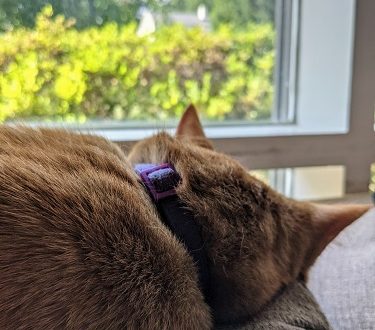
Putting Social Media in its Place
Social media pulls at my attention more than it ever has before. Have you noticed that?
It’s as if there’s a magnetic force drawing my hands to pick up my phone and my eyes to search the endless posts for something I’m not sure of.
Before the quarantine and before the birth of our son I developed a small measure of self-discipline when it comes to social media scrolling throughout the day. I even had specific times of day designated for work.
It keeps getting said and I kind of hate the phrase, but it’s true, the quarantine turned everything upside down. Our schedules, our routines, our habits all got thrown out the window.
As I scrolled through Instagram last week, I came across a post by Jennie Allen talking about our phone usage and brain fog.
If you haven’t heard of brain fog before it’s essentially that feeling of mental drowsiness before your first cup of coffee, or whatever it is you do in the mornings to wake yourself up.
Over the past week I started to notice how often my hand instinctively reached for my phone out of boredom and scrolling mindlessly. Curious about my phone habits, I opened it up to find out how much time I’ve spent using it the past month.
From April 26 to May 19 I unlocked my phone an average of 42 times a day, with an average screen time of three hours per day. The highest number of times I unlocked my phone in one day was 75 and the longest amount of screen time in one day was five hours and six minutes.
Jennie Allen’s post suggested choosing three of eight activities or actions to help clear the brain fog created by scrolling on our phones too often. The activities or actions included:
1. 1-hour break from phone
2. 1-hour reading before bed
3. 1 socially distanced coffee with a friend
4. 20-minute run
5. An evening walk
6. Visit relatives or friends in their yard
7. 30-minutes in bible study outside
8. 30-minutes in silent prayer
Some of these are difficult for me to do with a newborn, so I chose to take a one-hour break from my phone. It seemed like one I could easily accomplish and have the highest likelihood of success.
The first 30 minutes of my phone-free hour were hard. My hand itched to pick up my phone and my brain railed against sitting quietly for a whole hour.
I left my phone sitting on the coffee table as I sat on the couch staring at it, but after that first 30 minutes I noticed a lightness in myself, an openness that wasn’t there before. Perhaps it was buried beneath a thousand Instagram posts.
My mind started to clear, as if my cup of coffee finally kicked in. My focus was sharper, and my thinking wasn’t struggling to be seen through a dirty window.
Before I knew it the hour was up, and I didn’t feel the urge to pick up my phone right away. I became interested in doing other things, like taking a walk, reading a book, writing in my journal, or talking with Ryan.
It felt as if I could literally feel the tight grip it had on me loosen, a grip I wasn’t even aware existed until it was gone.
That’s the thing, isn’t it? We allow these things to have a seat at the table and before we know it they’ve taken control. They did in their heels when it’s time for them to leave and say, “I think I like it here. I’ll stay.”
And like the weak-minded falling prey to a Jedi mind trick, we let them stay, giving them our attention and energy and focus.
But the good news is, we don’t have to let those things keep their control over us or our lives. We can build systems that keep their check-out time set in stone.
If you’ve struggled with brain fog or a feeling of purposelessness during this quarantine, that perhaps was there all along, scroll back up to that list, pick three things, and do them.




